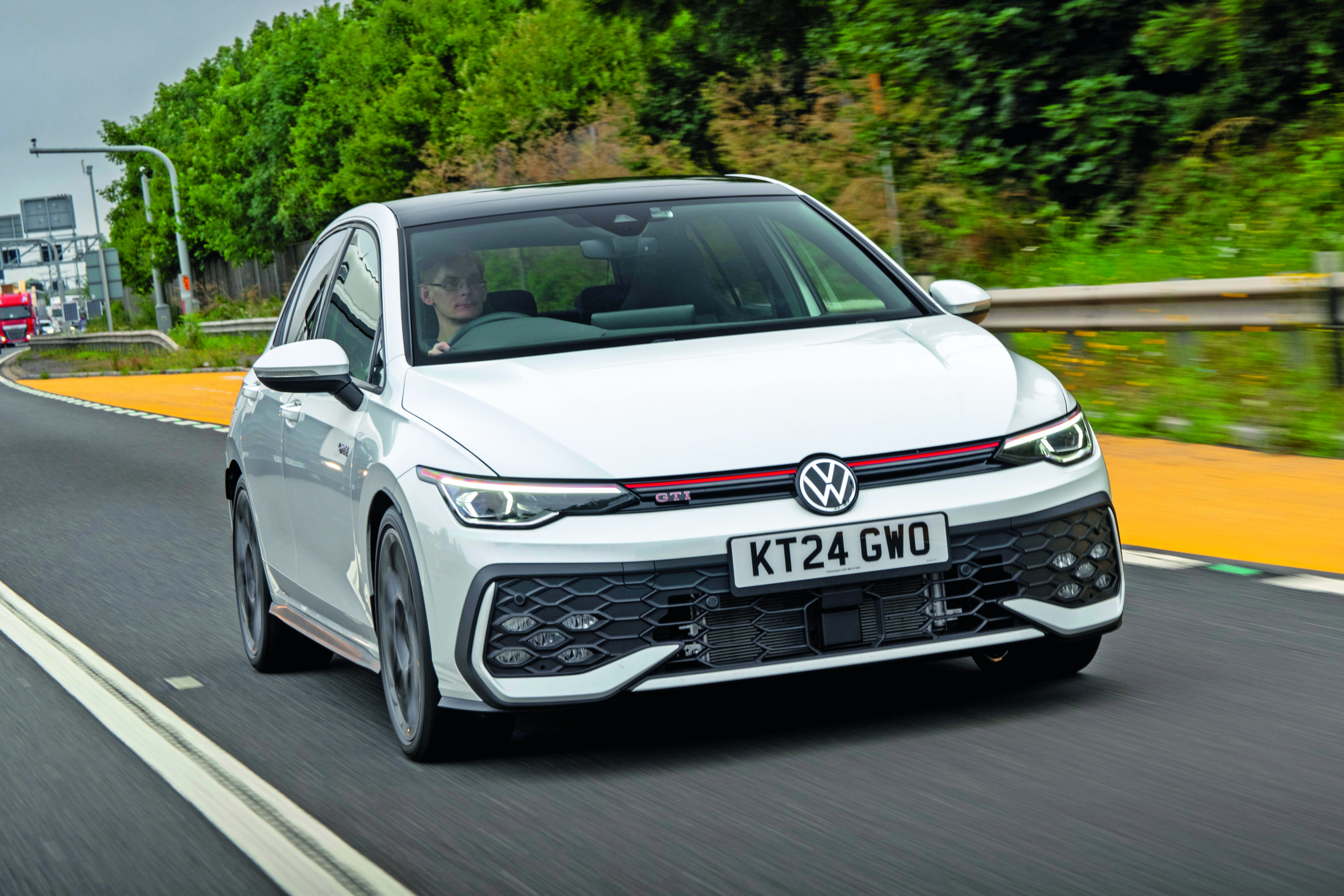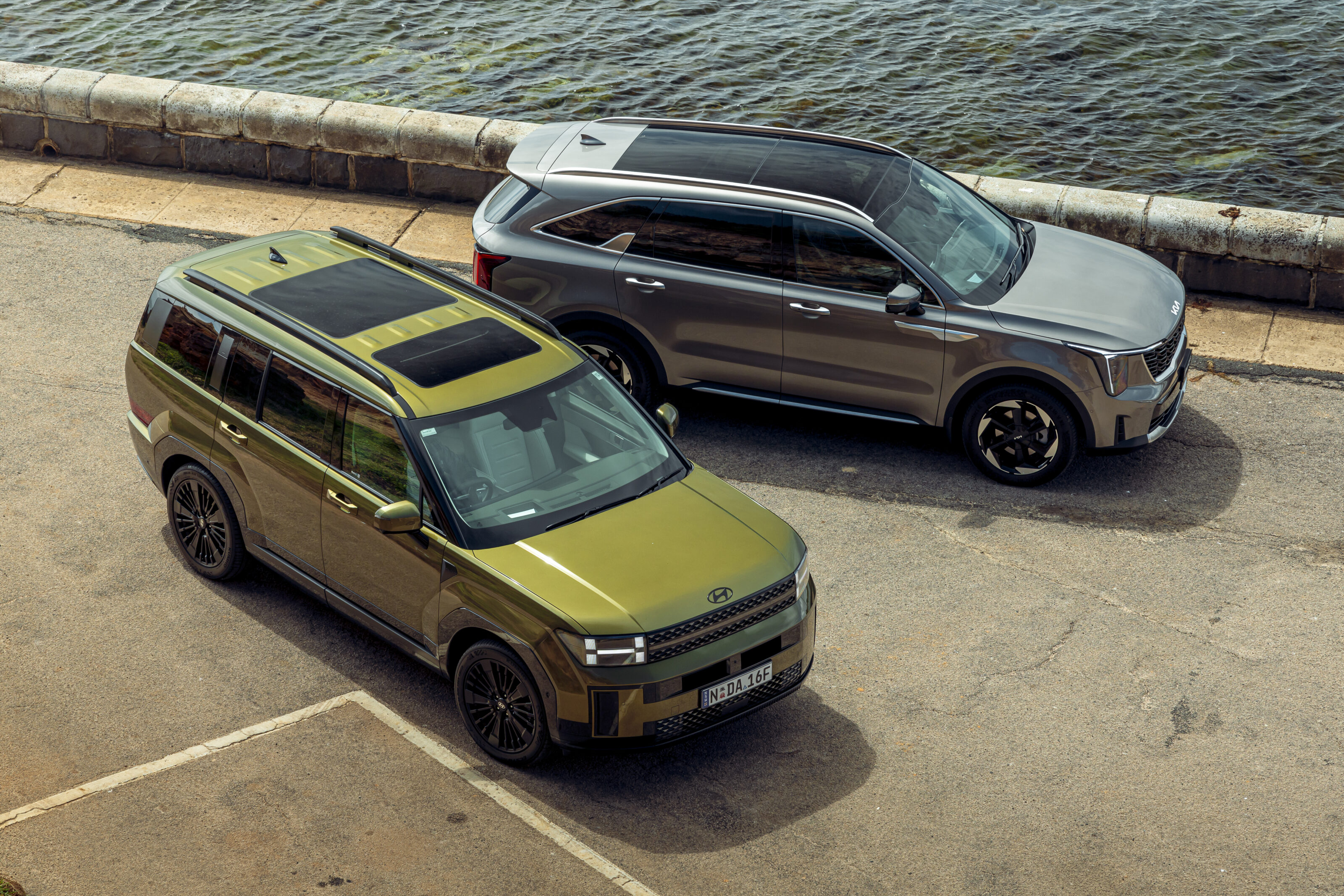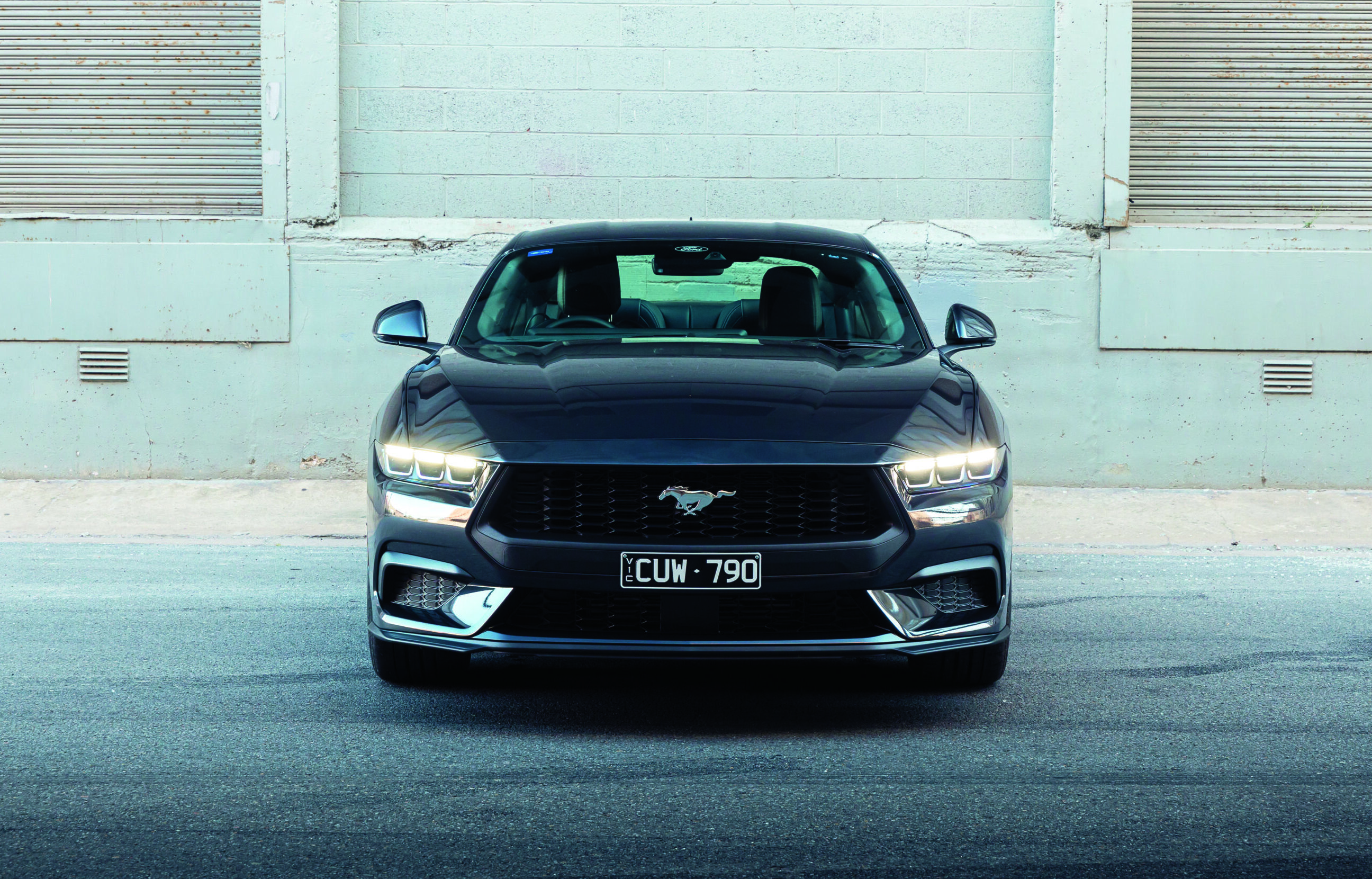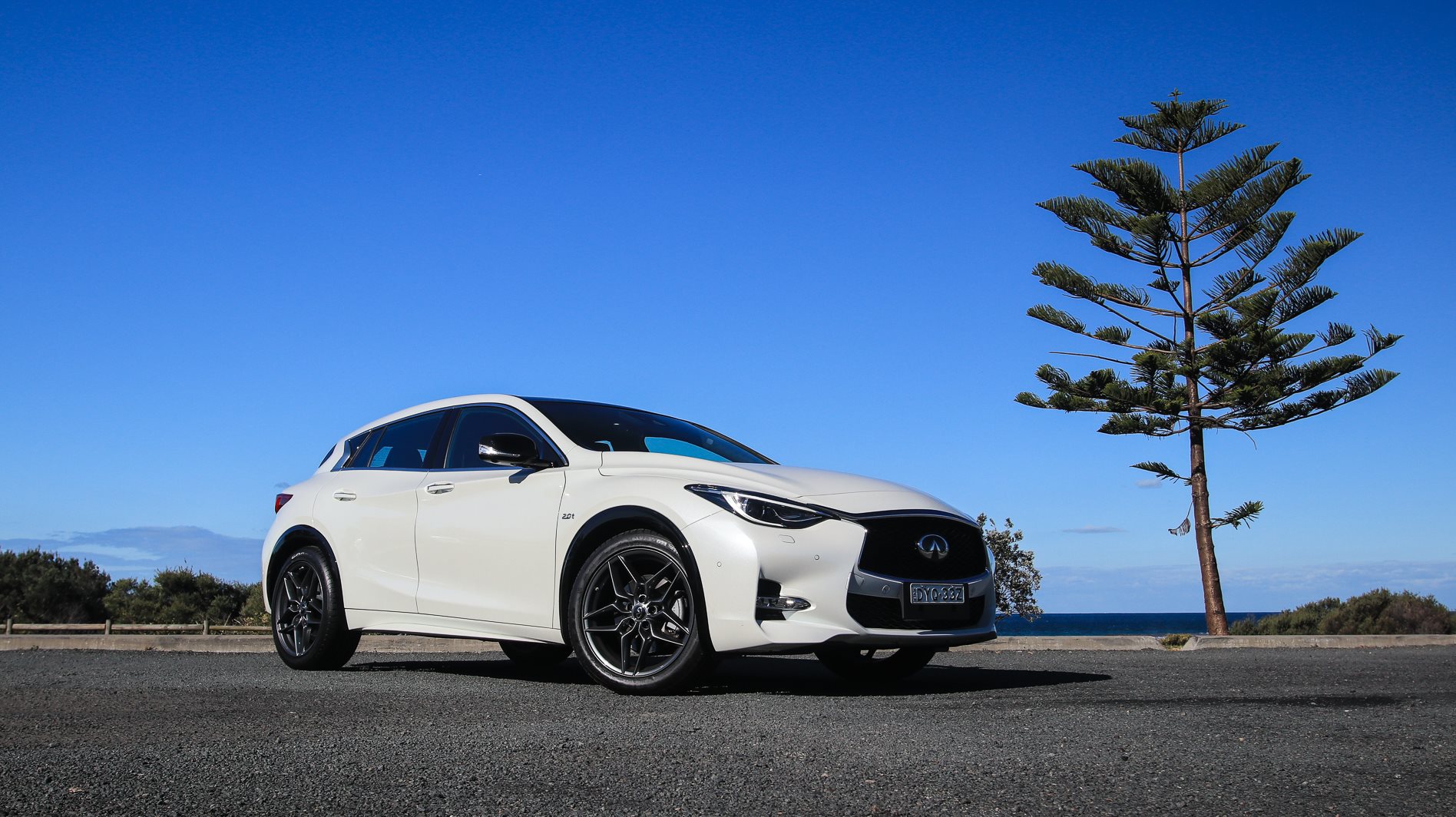
So apparently the car you’re seeing in the pics here is actually an SUV, and not a hatchback. Confused? Us too, a little bit. Infiniti – the luxury arm of Nissan that’s been around for about 20 years – insists, though, that the Q30 is a small SUV.
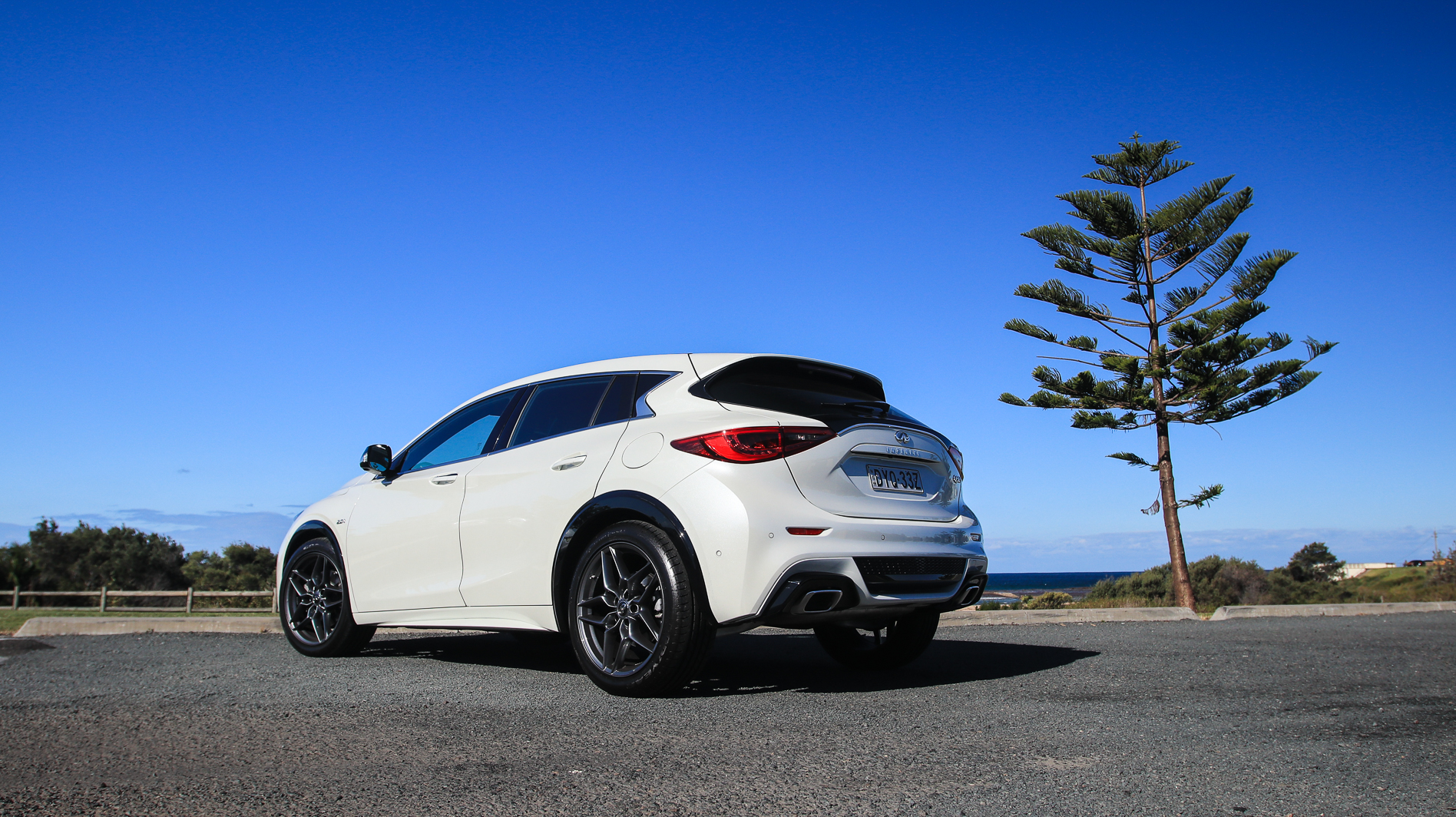
There is a bit of justification for the claim. The Q30 is a product of a collab between Mercedes-Benz and Nissan/Infiniti, and the Q30 mimics the Merc GLA down to the millimetre when it comes to its external dimensions.
It also rides on the same platform as the previous generation A-Class, and uses a Merc-derived 2.0-litre four-cylinder petrol engine that powers the front wheels via a seven-speed dual-clutch gearbox.
Inside, it’s a mix of Merc and Nissan, though to be fair you’d have to be pretty familiar with either brand to pick the transition between one and the other.
The Q30 Sport tested here costs a not-trifling $46,888 driveaway – though it now takes the place of the formerly range-topping Sports Premium variant, and as such marks a $6000 drop in price from its 2016 launch.
There is a cheaper, similarly powered version called the Pure which costs about $2500 less before on-road costs are factored in, but it misses out on much of the Sport’s driver aids. Gone, however, are the 1.6-litre petrol and diesel options offered at its 2016 launch.
Given its relative age, the Q30 is very well equipped, with LED headlights, 360-degree camera, park assist, traffic sign recognition, heated leather seats with powered fronts, a Bose stereo, lane departure warning, AEB and adaptive cruise control, while the exterior scores a terrific-looking set of dark grey 19-inch rims.
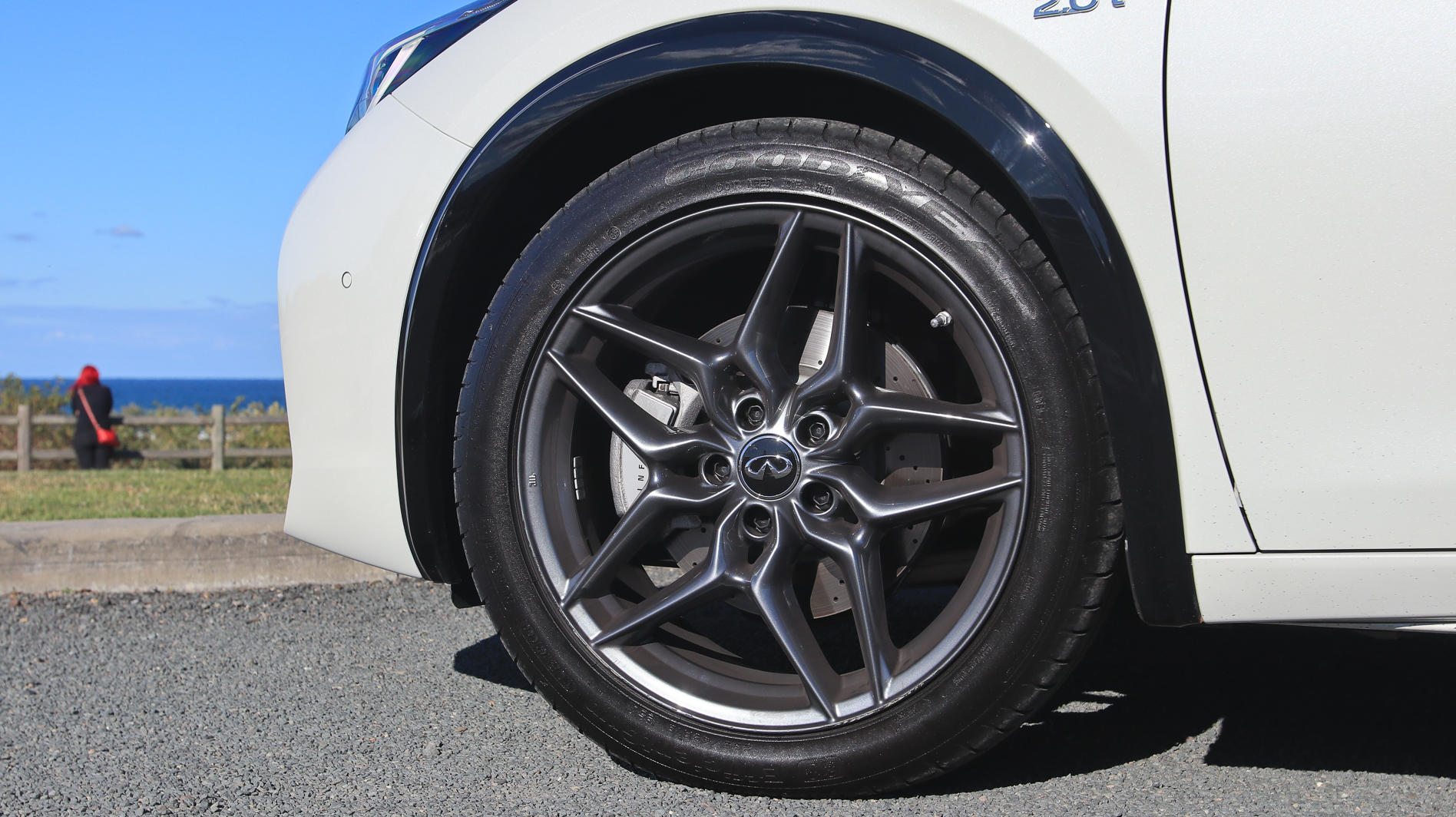
If you’re cross-shopping it against the Audi Q2 and BMW X1 or X2, and even the GLA upon which it’s based, the Q30 comes up a couple of grand cheaper in most instances. The GLA only comes in AWD, though, which pushes its price higher.
MORE: Mid-life model makeover for Infiniti Q30 and QX30
Infiniti’s true rival is Lexus, though, and the excellent new UX is cheaper at the base level but about $7000 dearer for the mid-grade car.
Given all of the standard driver aid gear, as well as its seven airbags and high-strength steel build, the Q30 is a five-star ANCAP car all day long. It offers a four-year/100,000km warranty, as well as fixed-price servicing regimes that can be pre-paid when you buy the car.
The downside of owning such a rare breed of car, though, is a distinct lack of dealer coverage, with only six dealers across the country. Of course, a Nissan dealer can assist with the basics, while a Mercedes-Benz dealer could help out with the A-Class-based Q30 in a pinch.
Out in the sunlight, time has been kind to the Q30. Its sculpted, sensuous lines put it in stark relief against the more angular Audis and Bimmers, and its not-quite SUV ride height gives it a refined stance.
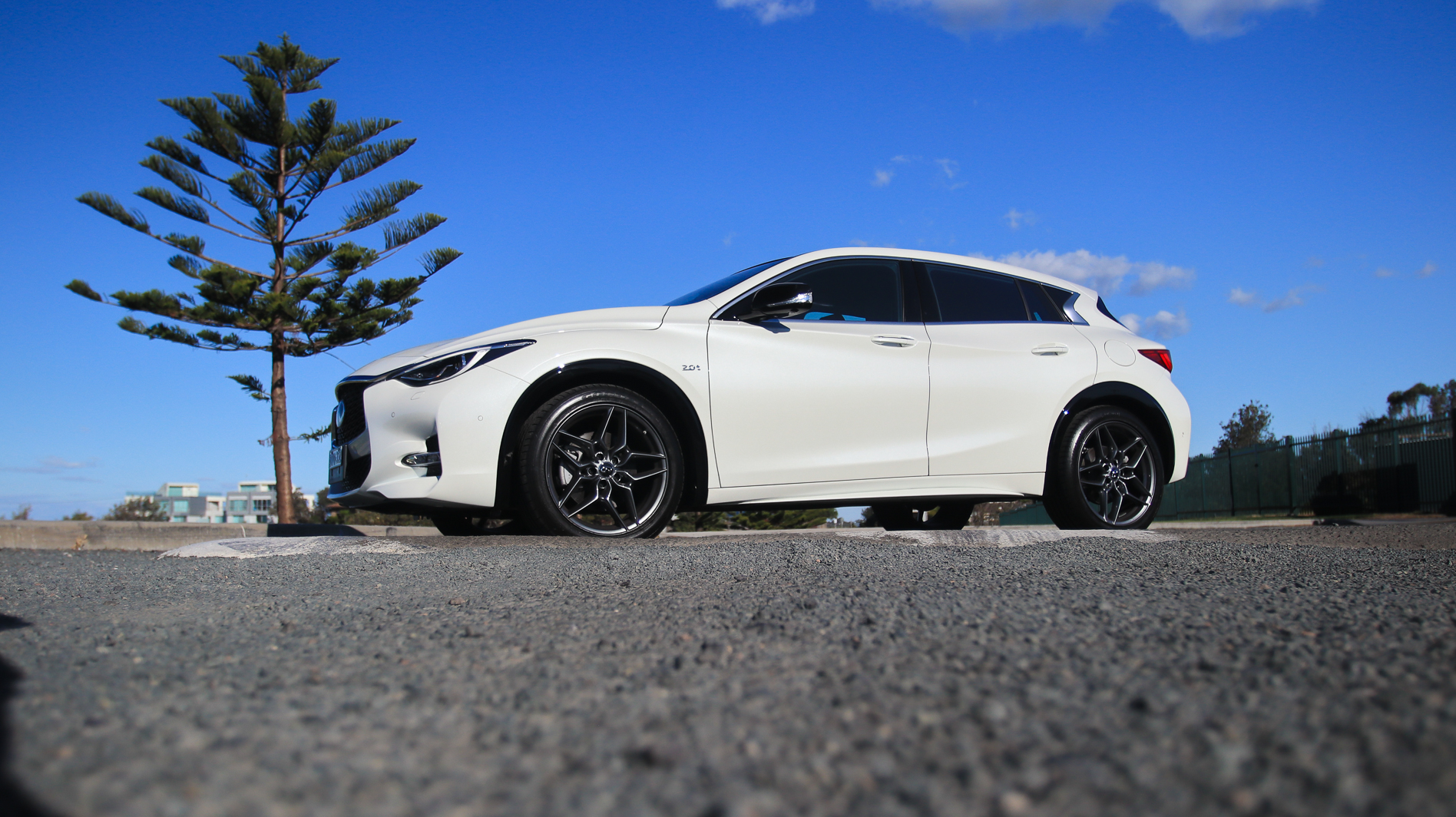
Those rims, too, give it a real presence in what can be a pretty cookie-cutter space.
Behind the wheel, Infiniti’s engineers waved their own spanners over the donor A-Class’s strut front/multilink rear suspension and electric steering, imparting a firm, robust character upon the car.
Its steering, in particular, is damped and quite weighty, and it’s been improved since the launch to give it more feel off-centre.
Its suspension tune, too, sits exactly on the right side of direct and firm without falling over into busy and annoying. It’s equipped with run-flat tyres as standard, but in this instance, they don’t detract from the low-speed ride quality of the Q30.
The turbo engine is fit and lag-free and hustles the Q30 up to the limit in good time, and the ratios of the dual-clutch box are well-matched to the powerband.
Against Infiniti’s combined fuel economy claim of 6.3L/100km, we recorded 7.5L/100km over 465km. It demands a diet of 95 octane or better.
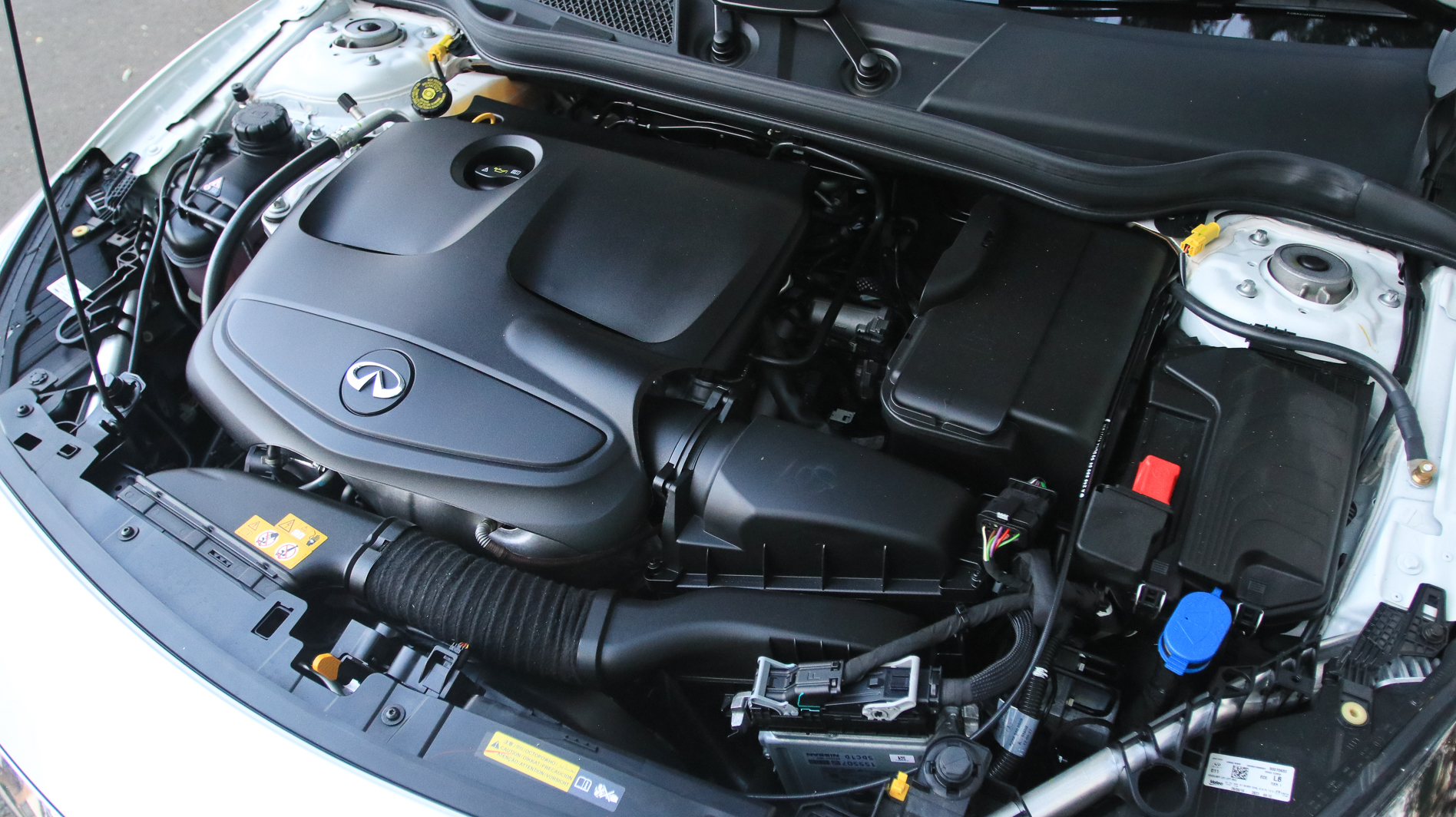
Ergonomically, though, the Q30 isn’t a perfect fit for taller drivers. Its low roof and steeply raked windscreen mean that the rearview mirror and rain-sensing gear blocks some forward vision, while rearward vision through the tiny rear porthole… err, window, it minimal at best and – with the centre seat headrest raised – non-existent at worst.
The joystick-style gearshift, too, isn’t a favourite of mine, taking a bit more time and a more deliberate action to get right when under a bit of pressure to get it done quickly. I also missed my Apple CarPlay, which gives me access to maps and music apps that the Q30 can’t help me with.
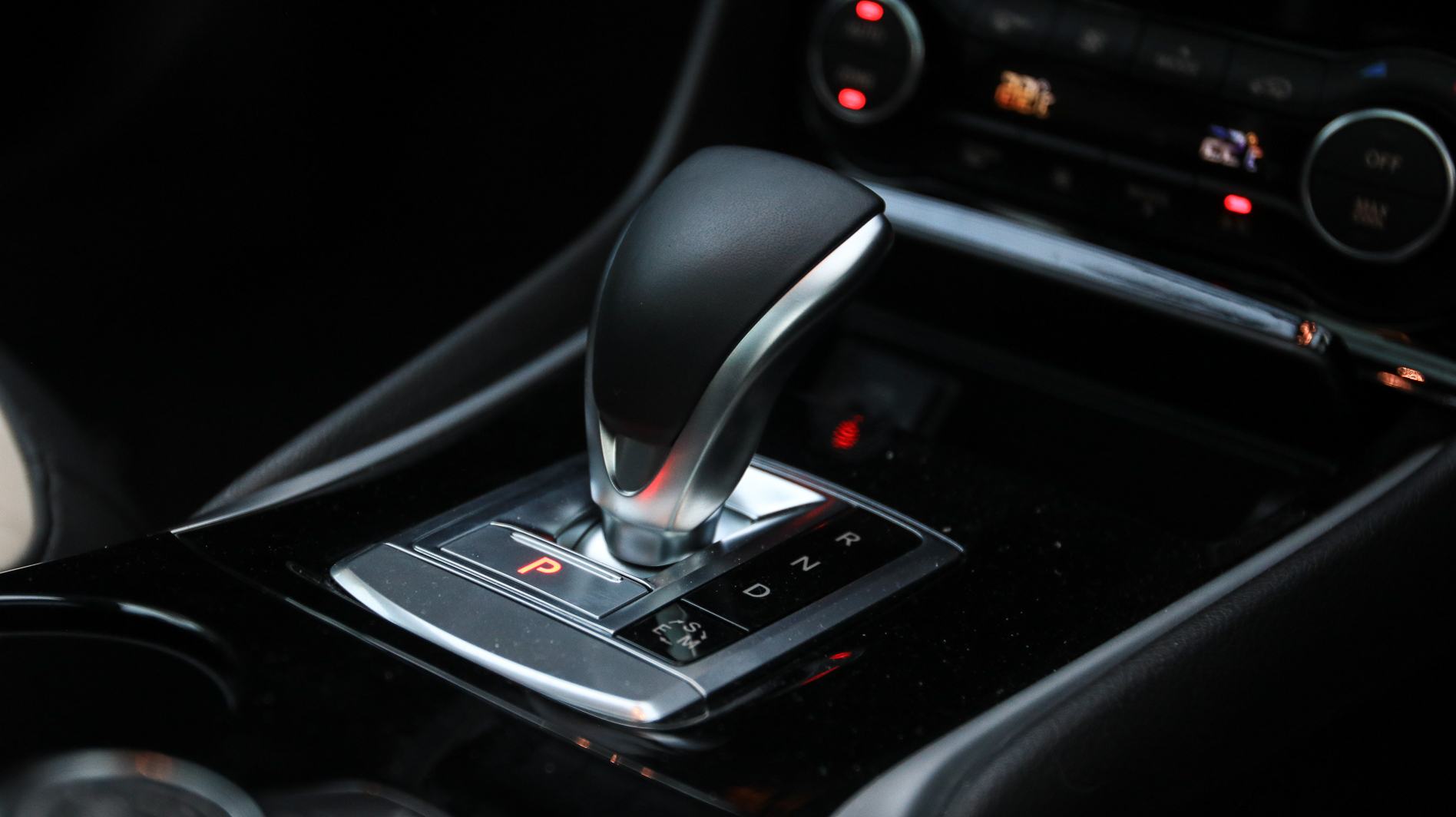
Luggage space is decent at 561 litres with the rear seats up, but rear passenger room is cramped for both headroom and knee room.
Overall, the Infiniti Q30 – which sells in truly minuscule numbers in Australia – is a unique beast in many ways, and it’s worth seeking out if you’re keen to break away from the pack and aren’t reliant on the rear seats.
A dearth of dealership support for the brand here, though, as well as pretty ordinary resale value, means that the Q30 will never be seen in serious numbers – but that might be a good thing.
SPECS Model: Infiniti Q30 Sport Engine: 1991cc in-line 4-cyl, dohc, 16v, turbo Max power: 155kW at 5500rpm Max torque: 350Nm at 1200 to 4000rpm Transmission: 7-speed dual-clutch Kerb weight: 1477kg 0-100km/h: 7.3sec (claimed) Fuel economy: 6.3L/100km Price: $46,888 (DA) On sale: Now
On September 2, 2019, Infiniti Australia announced it will fully withdraw from the Australian market by the end of 2020. For more information, head here.

